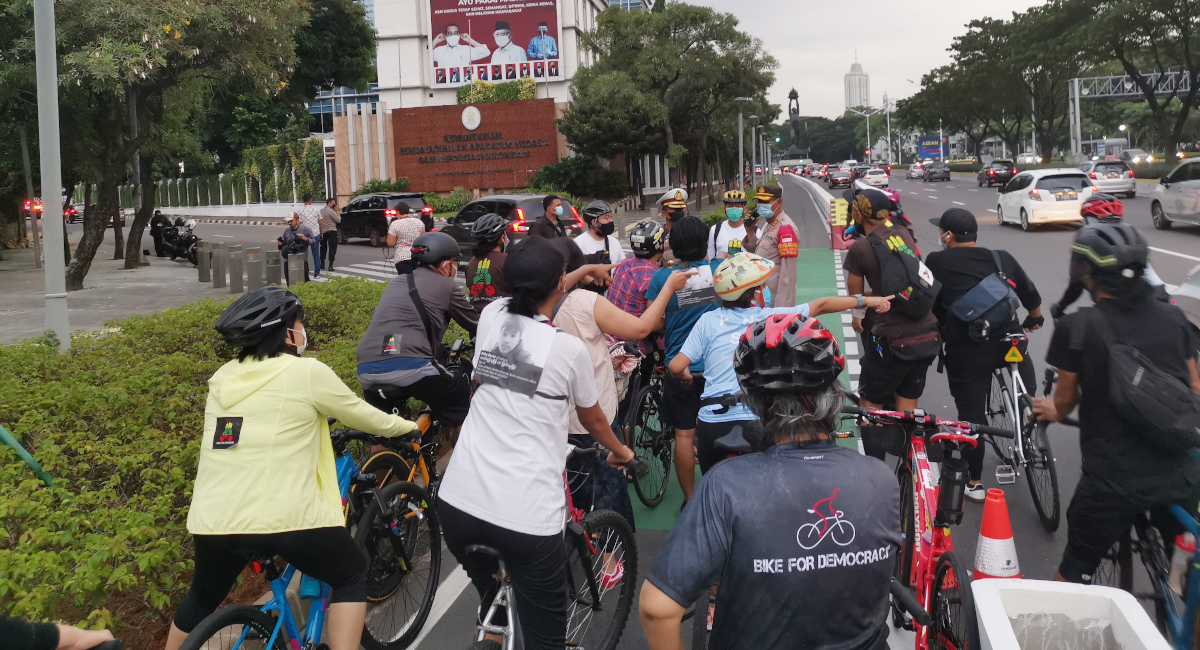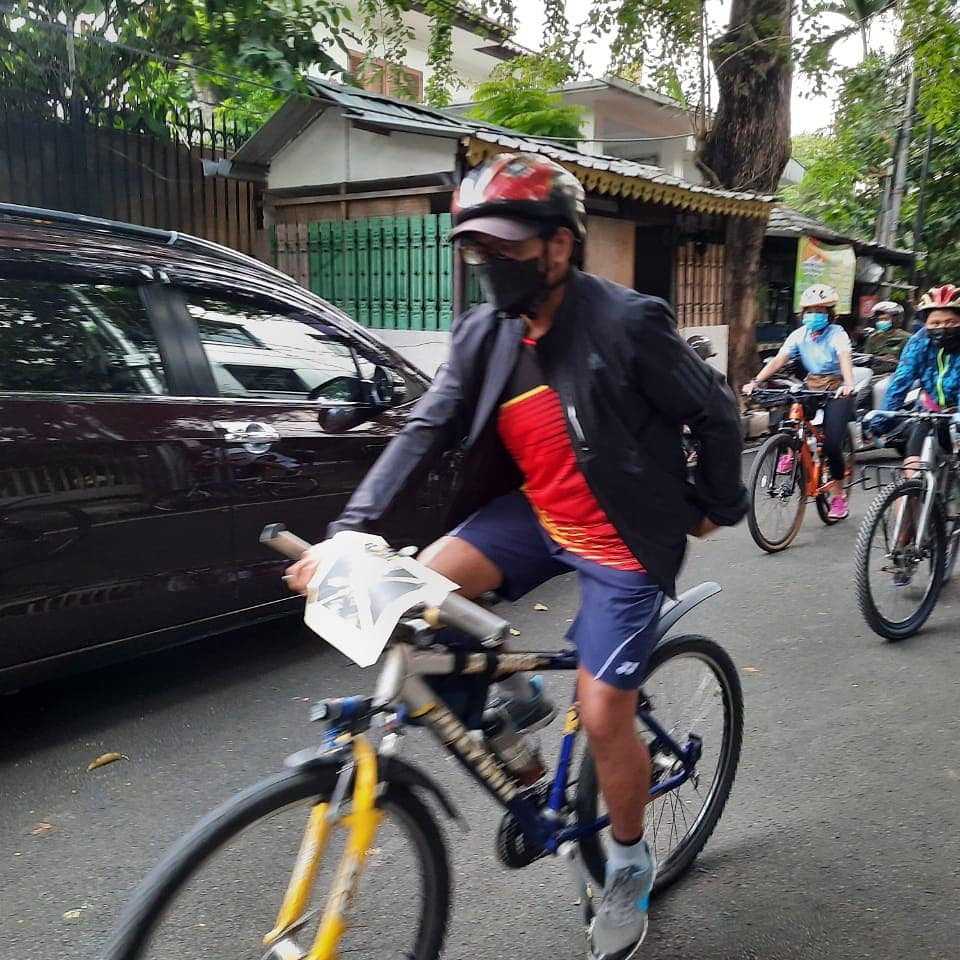
Indonesian bikers protest against Myanmar’s military coup
Indonesia hosted a leaders’ summit for the Association of Southeast Asian Nations (ASEAN) in Jakarta on 24 April to discuss the crisis in Myanmar.
The Jesuits in Jakarta, indeed the global Society of Jesus, have been praying for the people of Myanmar. An interfaith virtual prayer was held on the eve of the ASEAN summit participated in by 10 interfaith and civil society organisations in Indonesia. Muslims, Catholics, Protestants, Hindus, Buddhists, Kong Hu Cu (Confucians), and Sunda Wiwitan (indigenous Sundanese) converged on Zoom and prayed together according to their own beliefs. The prayer was livestreamed on YouTube.

Following their meeting, the ASEAN leaders reached a five-point consensus, calling primarily for an “immediate cessation of violence in Myanmar” and for all parties to “exercise utmost restraint”. They also urged for “constructive dialogue… to seek a peaceful solution in the interests of the people”. In addition, a special envoy of the ASEAN Chair will facilitate mediation of the dialogue process, with the assistance of the ASEAN Secretary General. The leaders also said that ASEAN will provide humanitarian assistance, and that the special envoy and delegation will visit Myanmar to meet with all parties concerned.
The consensus was met with various reactions. Some argued that the statement is strong enough to be addressed directly to General Min Aung Hlaing who was present at the summit. Others perceived the consensus to be unbalanced because there was no participation from the National Unity Government representing the people of Myanmar.
Josep Borrell, High Representative of the European Union (EU), said the five-point consensus is an encouraging step forward in ASEAN’s ongoing efforts to resolve the current crisis in Myanmar. The EU echoed the call for an immediate cessation of violence and supports the commitments made at the ASEAN summit to start a constructive dialogue. It also called for the immediate release of all political prisoners and the inclusion of the National Unity Government and the Committee Representing Pyidaungsu Hluttaw (CRPH), a group composed mostly of parliamentarians of the National League for Democracy.
The ASEAN summit was only the beginning. There is still a long way to go in finding a just solution for the people of Myanmar. For Fr Adrianus Suyadi SJ, Secretary for Social Ministries of the Jesuit Conference of Asia Pacific, individuals and organisations can do their part by monitoring the implementation of the consensus, particularly how the ASEAN will involve the representatives of the people of Myanmar and urge the military junta to immediately release the political prisoners.






